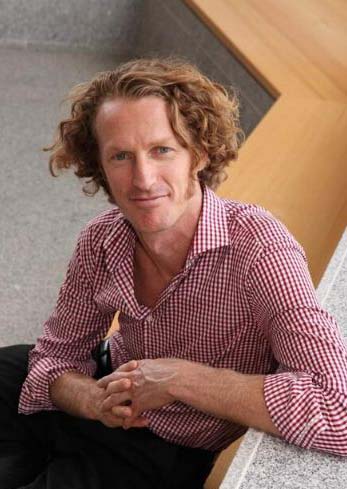A new era in mental health care in Australia has arrived after the announcement that a $10 million national research translation centre is to be established at The University of Melbourne, aiming to improve health outcomes for Australians with mental illness.
Launched today by Minister for Health, Greg Hunt and Assistant Minister to the Prime Minister for Mental Health and Suicide Prevention, David Coleman, the centre will establish a national Academy of LIVed-Experience (ALIVE), ensuring members with experience of mental health are at the forefront of research to co-design and transform the mental health care system.
The centre will be funded over five years through the National Health and Medical Research Council (NHMRC) Special Initiative in Mental Health grant and will operate as a virtual network across 14 university partners from all states and territories, including The University of Queensland.

Professor Cameron Parsell from UQ’s School of Social Science will co-chair the Centre’s Committee, supporting the move from reform to implementation of change in mental health care in Australia.
“This centre represents a ground-breaking opportunity to transform mental health centres,” Professor Parsell said.
“It will draw on not only cutting-edge knowledge from research, but also firsthand experiences of people living with mental illness in Australia.”
Professor Parsell said all activities of the centre are directed toward achieving systems change.
“I will be collaborating with colleagues, including Harry Lovelock from Mental Health Australia, to actively ensure that the knowledge produced through the centre is accessible to and used by policy makers,” he said.
The Centre will be led by Associate Professor Victoria Palmer, who leads the University of Melbourne’s Integrated Mental Health Research Program and is internationally recognised for her expertise in primary care mental health research and co-design.
“Despite the investment in mental health services and reforms over the past 30 years, we have not begun to bend the growth curve on mental health problems in Australia,” Associate Professor Palmer said.
“ALIVE aims to improve the dire situation we currently see for people’s physical health, as well as the 25-year life expectancy gap we see for people with severe mental illnesses.”
The national initiative will bring together a diverse range of professionals, including government bodies, charities, and community-based organisations. They will join more than 2200 members with lived experience of mental illness and carers of people with mental health needs who are part of an existing Co-Design Living Lab established by Associate Professor Palmer.
The centre will focus on implementing preventative interventions across the whole life course and integrated care in primary care and community-based settings. Priority populations include Aboriginal and Torres Strait Islander communities and people who are living with severe mental illnesses.
Professor Parsell said the centre recognises the social determinants of poor mental health, and the need to create equity and greater access to services and mainstream resources as a means to facilitate positive health change.
“Poverty and homelessness are bad for mental health, and these experiences of exclusion make it even more difficult to access healthcare.
“The centre will focus specifically on transforming systems so that people who are marginalised have greater access to resources and healthcare,” he said.
Minister for Health Greg Hunt said the centre will use research to rethink models of mental health care and the way they are delivered, to find a national solution to a national problem.
“The Australian Government’s investment in mental health services and suicide prevention in 2020-21 is at a record high of $5.9 billion. However, more services alone will not address the mental health burden in Australia,” Minister Hunt said.
“This centre will drive a national research agenda to deliver innovative, evidence-based mental health care. The centre complements the National Mental Health Commission’s reform program so that all people in Australia can lead fulfilling lives, participating socially and economically in thriving communities.”
Participating universities include Curtin University, La Trobe University, Monash University, Griffith University, University of Western Australia, University of South Australia, University of Adelaide, University of Tasmania, University of New South Wales, University of Newcastle, University of Queensland, University of Sunshine Coast, Swinburne University and James Cook University.



